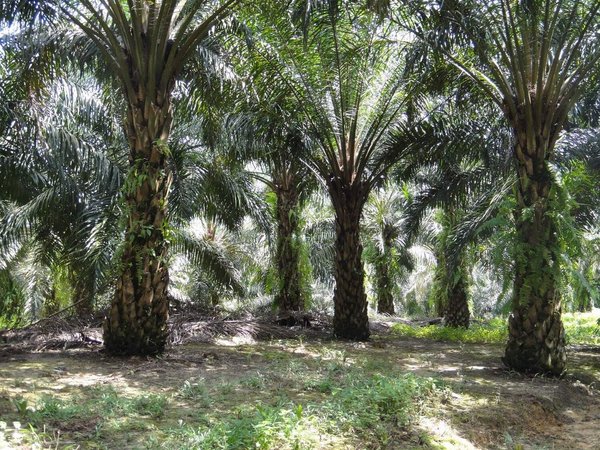- Share this article
- Subscribe to our newsletter
More profit despite fewer fertilisers and herbicides
Shifting to mechanical weeding and reducing fertiliser usage on oil palm plantations significantly increases both ecosystem multifunctionality and profits. This is the finding of a new study by researchers from the University of Göttingen, Germany, published in March 2023. The scientists compared different environmental measures and economic indicators for mechanical weeding, herbicide application, and combinations of these with high and reduced fertiliser usage.
Oil palm trees are the world’s most productive oil crop, and global demand is increasing. However, they owe their productivity to conventional management practices including high fertiliser and herbicide usage, resulting in severe environmental damage.
The cultivation of oil palms has increased in Indonesia, which is currently the world’s largest producer of palm oil. But despite the socio-economic benefits, oil palm production also causes environmental problems such as deforestation, biodiversity loss, nitrate leaching and greenhouse gas emissions.
The research team carried out their study in plantations that were at least 16 years old, starting in 2016 in Jambi, Indonesia. They aimed to test reduced management against conventional practices. They looked at the effects of reducing fertiliser usage to compensate for the amount of nutrients taken out with harvests of oil palm fruits, and mechanical weeding using a brush cutter.
Over four years, the researchers collected data on oil palm yield, material and labour costs, animals both in the soil and above ground, diversity of ground vegetation, greenhouse gas emissions, soil fertility, and nutrient leaching.
They found that despite reduced fertiliser usage, the oil palm yields are similar to those achieved with conventional management. In addition, there are major profit increases due to reductions in fertiliser costs. Biodiversity also significantly improves, driven by increased ground vegetation species owing to mechanical weeding.
(University of Göttingen/ile)
Read more on the website of the University of Göttingen





Add a comment
Be the First to Comment